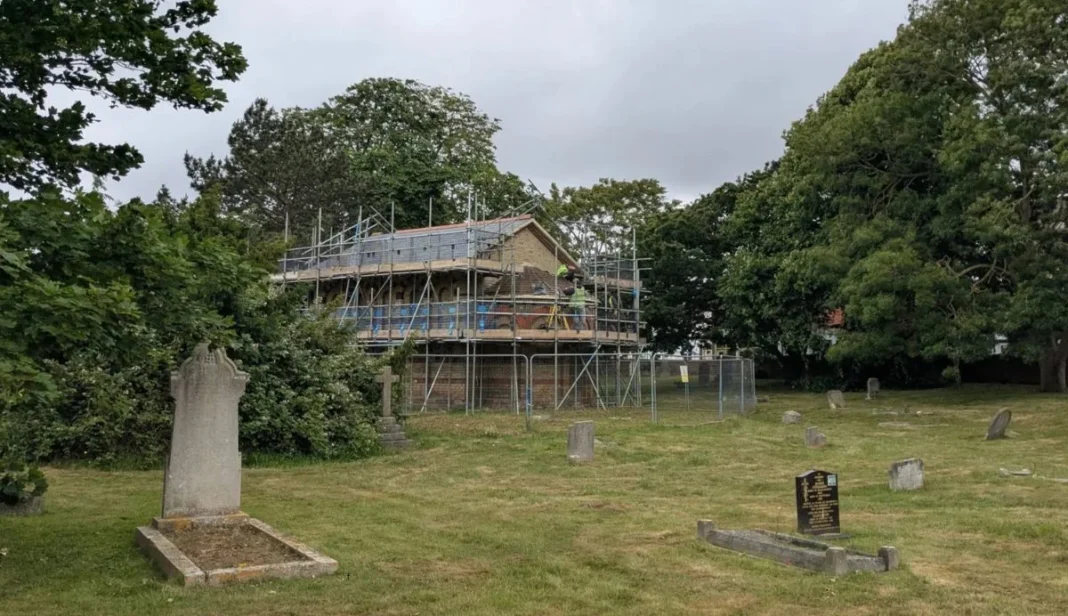Portsmouth City Council is investing in restoration projects across the city’s historic cemeteries, including repairs to listed chapels and plans to dismantle an unsafe lodge to create additional burial space.
Work is currently progressing throughout Portsmouth’s burial grounds to enhance the surroundings, preserve historical buildings and secure future interment capacity.
The city’s cemeteries hold significant historical importance and serve an essential function in community life. They provide tranquil, peaceful environments during times of grief whilst offering residents quiet green areas for contemplation. The council’s cemetery staff meticulously maintain these treasured locations.
Following the council’s heritage framework and to guarantee these significant historical buildings can be appreciated by future generations, their conservation has become a priority. From 2012 onwards, the council has allocated nearly £14.5 million towards heritage initiatives throughout Portsmouth.
Restoration work is presently taking place at the Dissenter’s Chapel within Highland Road Cemetery through a £65,000 initiative. Created by distinguished architect Thomas Ellis-Owen, this Grade II listed structure represents a distinctive Byzantine-style brick chapel. The restoration involves repairing the roof, walls and rendering, alongside fixing floor joists.
The council has also earmarked £200,000 for restoring the Grade II listed neo-Gothic West Chapel at Kingston Cemetery, which will return this structure to active use.
Plans are advancing at Milton Cemetery to carefully remove the cemetery lodge, an unlisted building vacant for more than ten years since on-site cemetery management ceased. The structure has been declared unsuitable for use as cemetery team offices and creates an unfavourable impression for visitors.
Various alternatives for bringing the building back into service have been considered, but its cemetery location makes these impractical, whilst its deteriorated state necessitates removal. This area can subsequently accommodate burials, ensuring Portsmouth residents maintain their preferred funeral options for years ahead, particularly as establishing new cemetery sites within the city presents challenges due to limited available land.
Portsmouth MP Endorses Major Housing and Defence Budget Increases
An environmental assessment has been completed, with the lodge garden remaining undisturbed during works to reduce disruption. Future improvements will tidy this space for public enjoyment whilst protecting wildlife habitats. The toilet facilities behind the lodge will be retained, with funding sought for future enhancements.
Councillor Steve Pitt, Portsmouth City Council Leader, commented:
“The city bears responsibility for its heritage, which the council regards seriously. Our heritage framework complements other recent heritage developments including the D-Day Story redevelopment, LCT 7074’s arrival, Victoria Park renovation and the Hotwalls Studios initiative. Recent investments have funded Kings Theatre repairs, Fort Widley restoration and Hilsea Lido renovation.
“Ideally, the council would fund all buildings under its care, but following over £110 million in budget reductions across the past 15 years, difficult decisions are necessary. The heritage framework was specifically created to guide optimal choices for appropriate reasons, safeguarding buildings with greatest significance and potential for future repurposing.”
The council’s heritage framework employs a scoring mechanism to determine which heritage projects receive support. This system guided cemetery investment decisions. Each project receives ratings from 0 to 10 across three criteria:
Status (official recognition or protection level),
Condition (required repair or attention), and
Potential Impact (possible social, economic, cultural and environmental benefits).
Higher total scores indicate greater support priority. This enables the council to concentrate on projects that are both significant and necessary, delivering genuine community benefits.
Milton Cemetery Lodge achieves low ratings across all three heritage assessment categories. It lacks official heritage designation, appears on no ‘at risk’ registers, and provides minimal social, economic or environmental benefits if restored. Consequently, building investment cannot be justified.



